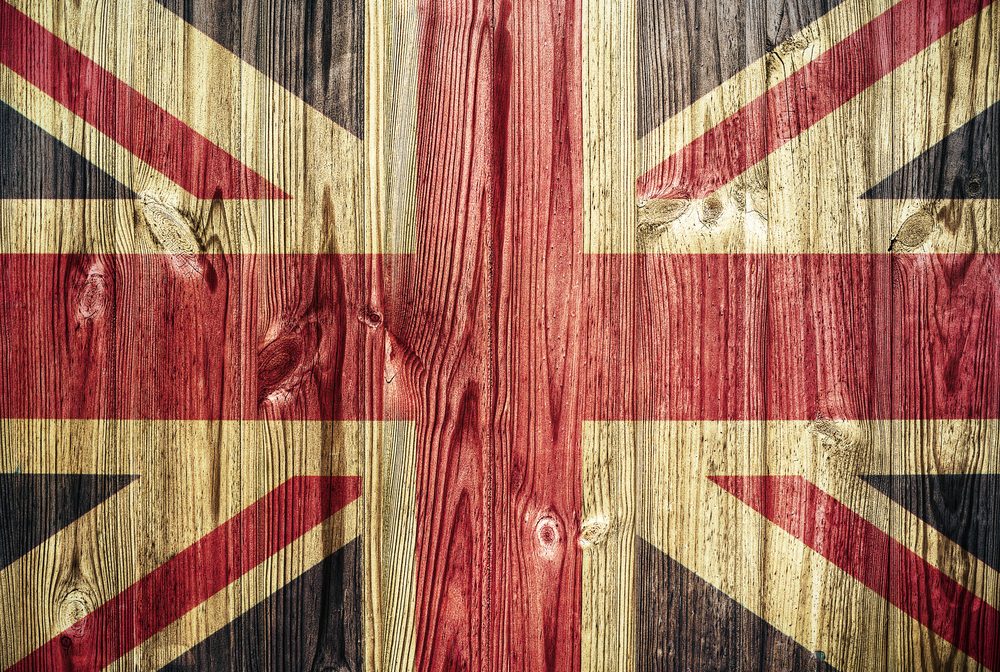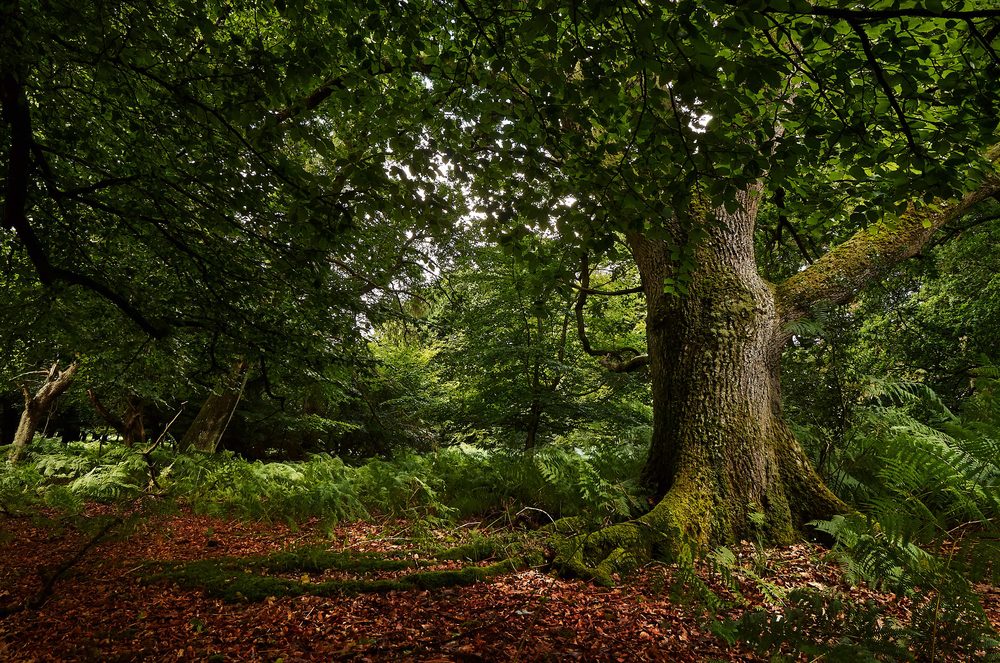
There is a range of British hardwood trees that produce excellent wood for flooring and are very popular among both commercial and residential developments. The type of wood flooring species you choose depends very much on the type of design you’re looking to achieve as well as the purpose of the development.
The more you know about wood flooring species, the more likely you are to make the best decision for your floors. Most of our country’s flooring options are made from types of British hardwood rather than softwood. This doesn’t necessarily mean that the wood is harder; hardwood comes from trees with leaves, whereas softwood comes from those with cones. All woods that are used for flooring will have received a British timber grade, which rates hardness and durability, and suitability for use. Before choosing a wood for your floor, have a read of our handy guide to the most popular types of British wood flooring.
Oak tree in English forest, autumn
Ash
There are around 60 different species of ash, and the deciduous tree grows all over the world. The colour of ash varies depending on the country of origin, with English ash being one of the lighter, creamier hues. The hardwood is extremely versatile – despite being one of the tougher woods available, it is also flexible and can be moulded into various shapes and sizes. English ash flooring is a good choice for commercial developments, or in homes that require a flooring solution that will last for several decades; it is shock-resistant and does not split easily. The rich colour of ash makes it a statement piece in any room, and it is often chosen for its attractive grain and natural variation of hues – from lighter ash surfaces to darker, olive-brown hearts.
Beech
Beech flooring gives an airy and light feel to any room, creating an illusion of greater space and calm. It is a robust, hardwood that is particularly hard-wearing and is therefore a popular choice for a range of developments. The typically creamy colour and delicate straight grain of beech gives a warm feel to any room, making it ideal for hard and soft décor in residential buildings, while its ability to withstand stress makes it a common choice for establishments such as sports halls, schools and canteens.
Sycamore
Sycamore trees are native to the United Kingdom and are one of the country’s most desirable choices for flooring. People often choose English sycamore it for its delicate grain and warm, yellowy hues. This vibrant, pale wood is ideal for contemporary designs, and it remains a consistent colour from the surface to the heart – meaning that the overall look will be clean, bright and minimalistic. Sycamore is not the most common tree species, therefore the price of the wood is typically higher than some of the more common flooring options. However, the wood is fairly durable, resistant to decay and displays a luxurious finish – so is ideal for those that want to invest in both practicality and fine design.
Maple
Maple is one of the most popular choices of flooring for contemporary designs. As seen here, its natural and light tones, and its subtle grain, complement a range of spaces, but is particularly suited to large rooms. Its durability makes it ideal for long-term use, and it copes well with daily stress and traffic in areas such as hallways. It is also popular for kitchens as it does not absorb stains.
Maple naturally displays a range of hues, so is well-suited for those looking to make more of a statement with their flooring. It’s an irregular wood, with part of its charm being that every board will look slightly different.
Oak
English oak wood is the perfect flooring choice for traditional interiors, such as sympathetic restorations and heritage properties. It has a very distinct grain pattern, which many people find clashes with modern, minimalistic design. The hardwood comes in either white oak or red oak – both exquisite options for a range of traditional homes – and both providing a dramatic finish.
Commercial English oak flooring is also a popular choice for businesses that require something particularly hard-wearing. There are a number of English oak tree facts that make it a popular flooring option for long-term use; the tree’s durable wood can last for many decades offering a lifetime of quality and wear. Oak floors are also versatile; they can be colour-matched, easily repaired and can be sanded down to individual preference.
Walnut
Walnut flooring is one of the most luxurious options, displaying a classic, dark and elegant look. It is ideal for adding drama and warmth to both modern and traditional interiors, and can be easily shaped and styled according to the room design.
English walnut wood is moderately durable, therefore meaning it is prone to damage if not maintained carefully. Because of this, walnut may not be a suitable choice for areas where there is frequent traffic – such as hallways – or many commercial interiors. It is instead ideal for bedrooms and living rooms – creating an inviting and relaxing space.
Elm
Elm is one of the rarest and most expensive flooring options. Elm trees were once common in the UK, but in the past few decades, many of the trees fell victim to Dutch Elm disease, making them now fairly hard to come by. However, new plantings of elms that are resistant to the disease are now increasing in the UK, making elm a viable flooring option once more.
Elm is loved for its coarse, open grain, which not only gives it a rough and wild look, but also means that it can be bent and moulded fairly easily. Elm is a durable, tough flooring option that is also resistant to decay; this makes it a good choice for external flooring needs as well as a dramatic and charismatic interior option. Elm is still an unusual choice of flooring and is a wood to be treasured and shown off. As a result, it is often chosen as a statement or centrepiece, rather than as a floor that blends effortlessly into its surroundings.
| Mon-Fri | 8:00AM – 5:00PM |
| Saturday | 10:00AM – 4:00PM |
| Sunday | 11:00AM – 3:00PM |





.svg)
.svg)